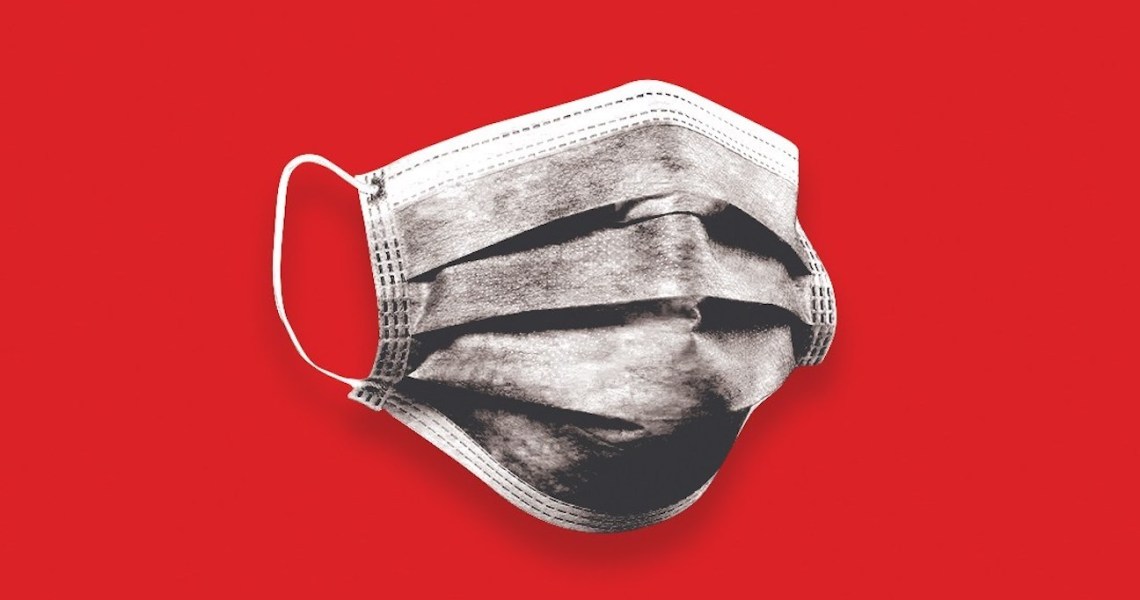With mask-wearing becoming a permanent social norm in the U.S., marketing “maskne” is on the rise.
Also spelled “mascne,” maskne is a skin issue that has become a main discussion point for skin-care brands as more civilians have adopted the use of face masks. According to Google Trends, “maskne” and “mascne” searches began emerging on March 29. Skin-care brands like Humane and Skin Inc., alongside celebrity dermatologists like Dr. Dendy Engelman, Dr. Whitney Bowe and Clarisonic’s dermatologist spokesperson Dr. Melanie Palm, have all begun to promote the maskne concept. There have also been reports of how PPE face masks, like the medical-grade N95 respirators used by hospital staff, are causing essential workers to face severe skin irritation. A 2006 study from Singapore looked at PPE-related adverse skin reactions in 307 staff members, mostly female nurses. Among those wearing N95 masks, 60% reported an increase in acne, 36% reported a rash, and 51% reported itch or dermatitis.
Alicia Yoon, Peach & Lily CEO, said the brand started receiving direct messages on social media from essential workers starting in late February, referencing skin issues caused by wearing masks. By April, the issue had become a broader concern for Peach & Lily customers; about 10% of all online skin-care consultations with customers discussed maskne. Peach & Lily has now made the issue an ongoing narrative in its unpaid marketing and communications. On Monday, the brand crafted a curated collection of 18 products called the “Maskne Essentials,” that are sold through its DTC website.
“We are a K-beauty brand, and in Korea, people have been wearing masks outside of coronavirus for a long time,” said Yoon. “Even though ‘maskne’ has not been a term there … Korean beauty has focused on fortifying the skin barrier, outside of [being known for] innovative and clean ingredients.”
Since the beginning of May and up to twice a week, Peach & Lily has been educating its social media followers on some of the main reasons why maskne occurs. They include contact dermatitis, dirty masks, skin barrier disruption, and a specific kind of acne called Acne Mechanica that is typically triggered by excess heat, friction or rubbing of the skin. Peach & Lily has shared bite-sized content about maskne via social media, but also published a longer blog post on Wednesday, to provide evergreen content to its site. Yoon describes this as an education period for the brand; Peach & Lily will focus on the maskne at least once a week throughout May.
“Once we share our messaging more widely with consumers, rather than answering [one-off] inbound questions, we forecast that more people will look at the Maskne Essentials page,” she said, but declined to state current website traffic.
Ellis Day Skin Science, a microbiome-focused skin-care brand launched its first product, a serum, on May 1 after five years of development. It launched with $1.8 million in seed funding and expects to earn $500,000 in sales during its first year. According to Natalise Kalea Robinson, Ellis Day Skin Science vp of brand marketing, the brand offered pre-ordering in March and began its marketing efforts on social media to attract early customers. From the get-go, the brand began to see discussions around maskne bubble up, and Ellis Day Skin Science has since published three pieces of coronavirus-related blog content.
BalmLabs, another new acne brand that launched in March, found that talking about stressed skin in the context of coronavirus has seen the most engagement across Instagram and Facebook, said Sarah Waldock, BalmLabs founder.
As a new marketing narrative, it can be difficult to pinpoint how successful this mask-related strategy will be in driving long-term sales. None of the brands interviewed for this piece have invested in maskne ads or influencer strategies, but they hope to be a source of information on the trend. Peach & Lily’s Rescue Balm, which sells for $28, has been referenced by the brand as one of several products to help with maskne that have experienced a 30% sales increase since March.
Kalea Robinson said it was too early to determine what percentage of women were purchasing the brand’s serum due to maskne, but she said the blog posts have contributed significantly to driving people to the website for the first time, because they have been shared across social media. An April 23 post about the skin microbiome and its relationship with coronavirus was shared over 170 times across platforms like Facebook, she said.
Although maskne is primarily being used as a way to talk about skin issues, there is the potential for maskne products to launch. Sports medicine brand MedZone released a face balm on Monday to address maskne, according to a product press release, and plans to roll it out to national retailers soon, according to a brand spokesperson.
“[Maskne] will be relevant to talk about for as long as people are wearing masks and having issues,” said Kalea Robinson.




